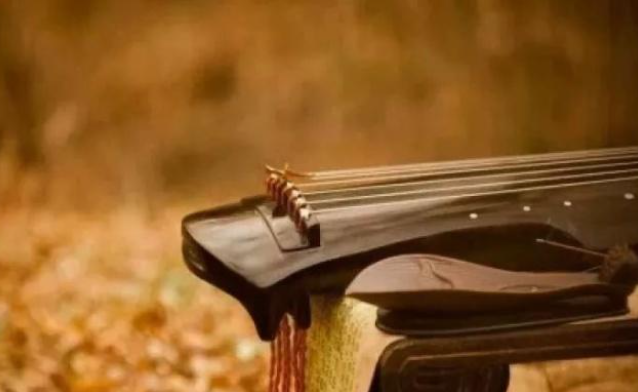The relationship between guqin music and health
Music therapy, ancient records. Many literatures claim that music can cure diseases, improve intelligence and prolong life. "Han Shu. According to the Book of Rites and Music, Emperor Yuan of Han suffered from amnesia when he was the crown prince. The emperor ordered people to play the music "Ode to Dong Ce" in the Prince's Palace, and read the ode to restore the prince's memory.

Modern scientific research has confirmed that music can regulate the cerebral cortex and increase the hormones in the body. In this good "stimulation", people's nervous, endocrine and digestive systems "move" smoothly. Physiological functions such as viscera are regulated, and yin and yang tend to balance, thereby relieving diseases and prolonging life.
Music, there is singing, called vocal music; there is musical instrument performance, called instrumental music. In the music and health preservation of the ancients, special attention was paid to creating a comfortable living environment by playing musical instruments, and the guqin was the first.
Guqin has a long history and profound cultural connotation. Its appearance is simple and elegant, and its tone is elegant and vigorous. The people who play the qin are more relaxed and comfortable, which is enviable, and the melodious sound of the qin is really pleasant. Therefore, the guqin has been favored by literati, writers, emperors and generals of all dynasties.
Guqin music is quiet, delicate, pleasant to listen to and not noisy. In addition to cultivating people's sentiments and achieving the effect of self-cultivation, frequent playing of the qin can also relieve pain. According to historical records, Emperor Shun was good at playing the five-stringed qin and sang the poems of the South Wind, and lived at the age of 110; Zhao Yeli, a qin master in the Tang Dynasty, died at the age of 76;
The way of health preservation in traditional Chinese medicine emphasizes regulating the balance of the human body, so that the balance of yin and yang can maintain true health, and the playing requirements of the guqin are completely in line with the principle of balance. To play the guqin, the fingers of both hands directly touch the qin, the fingers must be strong, the range of contact with the strings is wide, and the left and right hands alternately perform light, heavy, slow and urgent movements to achieve the best balance of human strength.
The ancients often said, "Ten fingers are connected to the heart". This is true. Fingers are closely related to the human heart and brain nerves. Frequent movement of fingers, especially when playing the guqin (which has the widest contact with the strings and has a balanced strength), can well promote the blood circulation of the peripheral nerves of the fingers and reduce the heart rate. The pressure of blood return and blood supply, as well as the harmonious grasp of breathing and music rhythm, can enhance heart function and get good aerobic exercise.
No matter in the problem solving, postscript, performance and appreciation, Guqin music reflects a quiet and thoughtful musical language, which makes people eliminate impetuousness.
The famous "Drunken Fisherman Sings Evening" is "quiet its gods and begin to gain". The artistic conception of Guqin music is to deeply implement the philosophy of life and the extremely abstract and ineffable things in a "journey" and a "dao". This form has produced a complex process of change in physiology and psychology. play a regulatory role.
Most of the sitting postures for playing the guqin are sitting upright and concentrating, the upper body is straight, the body is upright, the lower limbs are sitting flat with shoulders, the soles of the feet are parallel to the ground, the knees are together, the hips are relaxed, the abdomen is relaxed, the shoulders are heavy and the elbows are relaxed. Wrist, chest and back, etc. - the sitting posture of playing the guqin is similar to Taijiquan and stance in martial arts. For example, Xu Yong's book "The Functions of Mind, Qi, and Power in Guqin Performance" mentioned the practice of "knowing the three sections, understanding the three orifices, and knowing the three combinations". Know the three joints, that is, the coordination of shoulder to elbow joint, elbow to wrist joint, and wrist to finger joint. This kind of posture and physical requirements of playing the piano enable the player to achieve a state of tranquility and relaxation.
Guqin music is created based on Yin and Yang and the Five Elements. Guqin sound waves can promote the "static thinking" of the brain, train the brain, and thus have the effect of adjusting the various systems of the human body.
 渝公网安备 50010702504639号
渝公网安备 50010702504639号